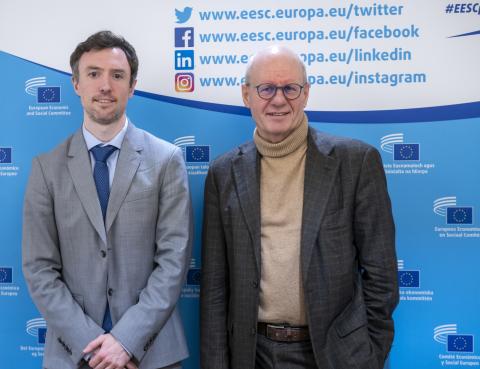A new report on Europe’s progress toward the Sustainable Development Goals (SDGs) highlights a significant slowdown, raising concerns about the EU’s ability to meet the 2030 targets. The Europe Sustainable Development Report 2025 (ESDR), published by the UN Sustainable Development Solutions Network (SDSN), finds that the pace of SDG progress between 2020 and 2023 was more than twice as slow as in the previous period.
Between 2016 and 2019, SDG progress increased by 1.9 points, but from 2020 to 2023, that figure dropped to just 0.8 points. This trend signals a worrying loss of momentum, especially as new environmental, social, and geopolitical challenges emerge.
One of the most pressing issues in the report is SDG 2 (Zero Hunger). Despite policies aimed at improving food security and sustainability, food and land system challenges persist across Europe.
A separate study, prepared for the European Economic and Social Committee (EESC), reinforces this concern. It suggests that demand-side measures, particularly dietary shifts, must play a greater role in advancing sustainable agriculture and improving public health. Encouraging people to adopt healthier and more sustainable diets could significantly contribute to meeting SDG targets.
The report arrives at a critical time, with a new EU leadership now in place. Experts are urging policymakers to take stronger action on sustainability and reaffirm their commitment to the SDGs. They stress that global cooperation and financing will be essential to accelerate progress.
One key event in this effort is the 4th International Conference on Financing for Development, which will be hosted by Spain in June 2025. The conference is expected to focus on scaling up international financial support for sustainable development, ensuring that resources are allocated effectively to tackle climate change, food security, and economic stability.
According to Guillaume Lafortune, Vice President of the SDSN and lead author of the report, global uncertainty and rising geopolitical tensions are further complicating the path toward sustainability. However, he remains optimistic that with the right policies and investments, sustainable development remains achievable.
“The world is increasingly dangerous, unstable, and uncertain,” he said. “At the same time, people, especially young people, want sustainable development. With the size of the global economy and the technologies available, the world has the potential to fully achieve sustainable development.”
The report’s findings serve as a clear warning that Europe needs to act faster to meet its sustainability goals. Experts are calling for greater political will, stronger policies, and increased investment to address challenges in food systems, environmental protection, and social development.
«Sustainable food systems are a crucial driver for the implementation of the SDGs. To accelerate action, we need more ambitious mechanisms to safeguard livelihoods of farmers, small-scale food producers and other stakeholders across the food supply chain. But we must also tackle unfair distribution and ensure a just transition» said Peter Schmidt, EESC’s Agriculture, Rural Development and the Environment (NAT) Section president. «As organised civil society, we have the opportunity, the duty and the aspiration to have an impact on the sustainability transition. We call for meaningful and structured engagement of civil society, including youth, in policy making to make sure that no one is left behind in this journey».
With five years left until 2030, the EU must decide whether to step up its efforts or risk falling short on its commitments to a more sustainable and equitable future. (ks)
